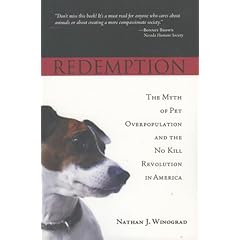I came across the
RSPCA's evidence to the Select Committee on Environment, Food and Rural Affairs' inquiry into the draft Animal Welfare Bill and I think it's worth quoting some of the detailed explanation of how the RSPCA Inspectorate and the Prosecutions Department go about investigating cruelty complaints.
The passage into law of the Animal Welfare Act doesn't significantly change the way this works, although it has made it possible to intervene earlier where animals are being kept in unsuitable conditions. The transcript of the oral evidence puts it into one huge paragraph, so I've spaced it out to make it a bit more readable.
Mr Flower (RSPCA Superintendant Prosecutions dept.): Yes. All of the prosecutions launched by the RSPCA are as a private prosecutor. If the Bill becomes law that position will not change. We will still be a private prosecutor. You are probably aware that, although the Crown Prosecution Service was set up in 1985, the law specifically provided and allowed the preservation of the rights for private prosecutions to continue, and we are a private prosecutor.
The way our inspectors work at the moment to bring about private prosecutions is this: generally we receive a large number of complaints alleging the cruel treatments of animals from the public—last year it was in the region of 105,000.
Our inspectors investigate all of those complaints; they check on the welfare of the animals; they try and determine whether an offence may have been committed. In investigating complaints our inspectors require the co-operation of animal owners because the RSPCA inspectors have no statutory powers, so if an inspector wants to see an animal he is invited into the premises by the owner.
If the inspector believes that an offence may have been committed because he is confronted with an animal in a very poor condition, then he will strive to take the animal to a veterinary surgeon for examination because we rely on the veterinary surgeon to provide evidence that the animal has been caused to suffer.
If an owner is not co-operative and will not allow an inspector access or the removal of an animal, then we are obliged to enlist the assistance of the police, because the police do have certain powers under current law in relation to arrest and seizure of items of evidence, but we only need to call on the police in very limited circumstances.
If the inspector then has evidence that there is a potential offence and the opinion of the veterinary surgeon is that the animal has suffered, the inspector will then proceed to investigate with a view to compiling a file of evidence. This will comprise witness statements, expert evidence, photographs, and the owner of the animal will be given the opportunity to be interviewed.
The interview is conducted in accordance with the provisions of the Police and Criminal Evidence Act, so the accused is cautioned and advised that they have the opportunity to seek legal advice before speaking. They are also told that they have the opportunity to have their animal examined by a veterinary surgeon of their choice in order that they have the opportunity to have an alternative opinion on the state of the animal. This is all done partly to comply with statutory provision, and partly to be fair to the accused.
Once the investigation is completed the file of evidence is sent to the Prosecutions Department. There are five staff there who assess all of the cases that arise in England and Wales. The Prosecutions Department adheres to the provisions of the code for crown prosecutors when assessing the file of evidence. There are two principal tests, as you probably know.
One is that there must be sufficient evidence to make a conviction more likely than an acquittal if the case is prosecuted, and there must also be a public interest in prosecuting, and all of the decisions that the RSPCA makes with regard to prosecution are based on those criteria.
Although we are probably one of the biggest private prosecutors, prosecution is a very small part of our inspectorate's work. I mentioned that last year inspectors investigated about 105,000 complaints. The number of cases submitted to Prosecutions Department was about 1,400. Of that 1,400 we prosecuted about 700-800—about 50%, so I think this demonstrates that we are not, as some people may suggest, just out to secure convictions at all cost.
We assess cases carefully and we apply the appropriate tests before we prosecute. That is why our prosecution numbers are so low. Although we are careful with our prosecutions, we do have a very high success rate. Last year the number of convictions we secured from our prosecutions was about 96% which is a significant success rate.
I believe another criticism that may have been levelled is the fact that there is no form of accountability as far as our prosecutions are concerned. I think the example was cited that the police investigate offences but the Crown Prosecution Service decides whether to proceed and that is some sort of safeguard, but the position of the RSPCA is no different from any other non police prosecutor. There are plenty of them, from British Rail to British Waterways, TV licensing and local authorities will occasionally prosecute, but the CPS do not have responsibility for assessing cases brought by non police prosecutors.
If a suggestion is made that RSPCA cases should go to the CPS to be assessed then that is a misleading suggestion because the CPS does not have the authority to prosecute for anyone other than the police. The position of private prosecutions was considered in 1998 by a Law Commission report and that concluded that there were adequate safeguards in place to ensure the right to bring private prosecution is not abused. Those sort of safeguards include the DPP having a right to intervene [if a prosecution has been brought inappropriately].

